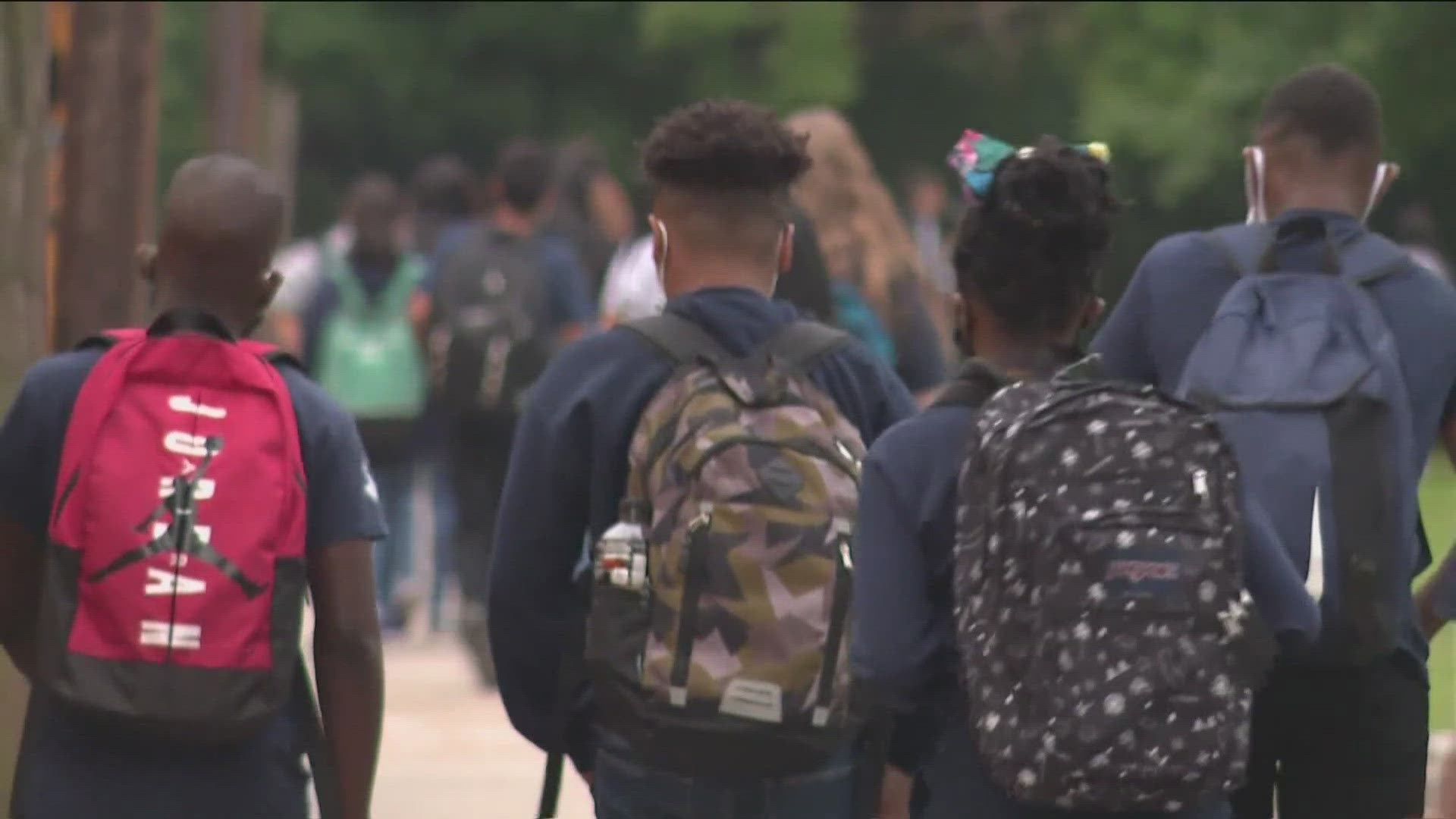ATLANTA — The Georgia Department of Education announced its priorities for the 2025 legislative session on Monday. These priorities will help guide State School Superintendent Richard Woods' conversations with lawmakers during the session, along with the agency's work during the session and beyond.
Superintendent Woods said the legislative priorities focus on steps the agency can take to ensure a safe, successful and supported education system -- ranging from enhancements to school safety to funding for ongoing literacy initiatives.
"We are at a critical moment in Georgia public education," Woods said. "Building on the investments made by the Governor's Office and General Assembly, and the work of the Department of Education and local districts and schools, we have the continued opportunity to ensure all schools can prepare all students for life."
Below is a breakdown of the department's 2025 legislative priorities:
Safe
The state Department of Education said it will focus on securing a safe learning environment for all and a safety standard across Georgia. It will make an effort to do this through the below ideas:
- SRO: Pay for a School Resource Officer in every school.
- Crisis Alert System: Pay for a crisis alert system in every school.
- Mental Health: Expand the state's APEX program in schools.
- Dedicated Safety Funding: Support and continue the flexibility of line-item school safety funding.
- Coordination: Pay for a school safety coordinator position at the state Department of Education
- Record Sharing: Establish a policy that supports increased record sharing among school districts, state agencies and law enforcement.
- Cellphones: Establish statewide model policies for cellphone use that will minimize instructional distractions and bullying while also providing appropriate access in safety and medical situations.
- Fentanyl Awareness Education and Narcan Funding: Protect students through increased awareness and access to life-saving resources.
Successful
The Georgia Department of Education said the state's investments in education are paying off, with evidence being historic graduation rates, rising test scores and beating the nation in the SAT and ACT. It believes this momentum can be continued through the following ideas:
- Literacy: Establish a Literacy Trust to support state literacy requirements, providing state funding to school districts for universal screeners, high-quality curricula, school-level coaches, training, implementation and teacher stipends.
- Numeracy: Support the newly-revised Georgia K-12 math standards to build upon early successes.
- Understanding our Founding: Provide all 4th-grade students with a pocket U.S. Constitution.
- Workforce Development: Pay for summer Work-based Learning (WBL) opportunities, outfit CTAE labs offering high-demand career programs and support WBL for at-risk youth.
- Leadership Pipeline: Restore funding to increase compensation for educators who earn a leadership degree.
- Teacher Pipeline: Expand the Return to Work option to include reading, math and special education as statewide high-need areas and remove the July 2026 sunset.
- Acknowledge Experienced and Dedicated Educators: Expand the teacher salary step increases beyond 21 years of service.
- Treat Teachers as Professionals: Secure a minimum number of personal days for teachers and classified staff.
- Fully Fund Education: Fully fund QBE.
Supported
GaDOE said it needs to continue to support those who help students by setting them up for success. It believes this can be done through the below ideas:
- Support Barrow County and Hurricane-impacted Areas: Acknowledge the need for additional resources and support for Barrow County Schools and schools affected by Hurricane Helene.
- Modernize the Funding Formula: Modernize the QBE funding formula with a poverty weight, funding for technology and updated funding weights for bus drivers, custodians, paraprofessionals, media specialists, substitutes, school nurses, school social workers, school counselors and school psychologists.
- Make Afterschool not an Afterthought: Pay for afterschool and summer learning programs to expand instructional time, address learning loss and support working families.
- Character Education: Pay for character education programs.
- Connectivity and Cybersecurity: Continue providing critical PeachNet connectivity and cybersecurity tools to all schools, especially those in rural and low-wealth areas.
- Facilities: Provide facilities funding for charter schools.

